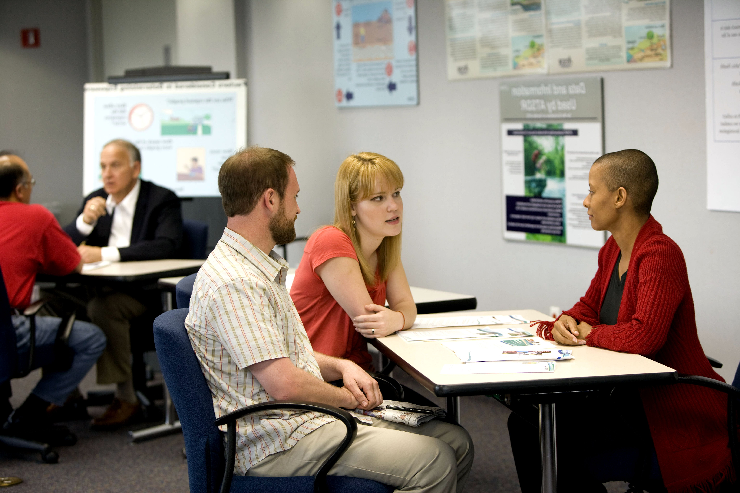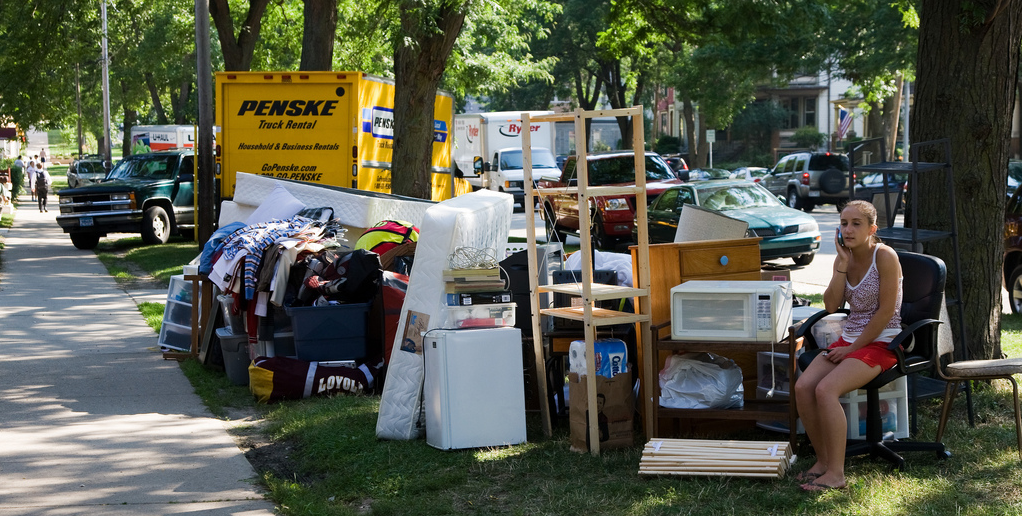What is the Meaning of “Life”?
The Declaration of Independence names three rights given to all human beings that no authorities can deny. One of those rights is the right to have ownership of one’s life. While life and death are frequently “administered” by mechanisms such as medical procedures, war, and criminal justice, the Founders believed that our birth, our creation as part of nature can never be predestined by the requirements of bureaucracy or the actions of legislators or jurists.
That said, government sources takes many actions that impact the full exercise of individuals’ quality of life, including through the use of policies to affect poverty levels, health care, physical security, and individual dignity.
Here are some current events and philosophical outlooks about the path that governments must tread in order to provide individuals the greatest opportunity and probability of exercising their most natural right — existence.

Learn More About “Life”

The Role of Parents in K-12 Education
Two classmates grow up together from kindergarten. They sit next to each other in homeroom, have all the same classes with all the same teachers, and take the same state-required tests. One does well and one not so much. What accounts for the difference?
The answer depends on who is responsible for a child’s education.
read more
Using the Burger King Mentality to Destroy a Four-Year Investment
Forty-three years since its release, people still recall the “have it your way” Burger King jingle as one of the most effective pieces of advertising ever made, driving home exactly what Burger King was selling — convenience, made-to-order fast food, delivered to you just the way you like it, no questions, no lip, no delay.
It’s the Burger King mentality, and it’s great for ordering a drive-thru dinner. But the sentiment has crept into a lot of college campuses lately, and unless you’re in the student union food court, the Burger King mentality has no place at these institutions of higher learning.
read more
The Success Sequence: Why Education, a Job, Marriage, Then Kids Is the Working Order
Ah, millennials. In some ways, they’re very traditional, suggesting that women should stay at home to raise their kids. In other ways, they are very Bohemian, doing as they please when the mood hits. But it turns out, the old-fashioned success sequence — a (high school or higher) degree, job, marriage, then children, in that order — is still the winning combination for securing financial well-being.
read more
At Risk of Losing Your Lease? A Legal Battle Isn’t the Answer
If you don’t pay your rent, can you still stay in your rental property? Or is that landlord going kick you to the curb? It’s a fear that low-income families face in difficult times. Rent courts are tough. The legal battle is often reliant on a sympathetic...
read moreMore Stories
Scholarships to Encourage Kids to Attend School in Low-Income Neighborhoods?
Here’s a thought. Instead of busing underprivileged kids to wealthy suburbs, how about sending kids from wealthy households to private schools in low-income neighborhoods?
Some might say, “No way, I’m not sending my kid into a dangerous neighborhood just to attend a private school.” But what if a scholarship program could gentrify neighborhoods by encouraging parents to move to or stay in lower-income areas and send their kids to nearby private schools?
read moreJames Madison: ‘Father of the Constitution’ Thought You Should Know This
James Madison, the fourth president of the United States, is known as the “Father of the Constitution.” He was a statesman, a historian, a Pisces. He wrote the Bill of Rights.
But for some reason he doesn’t get the popular attention other founders receive, and Rebecca Burgess contends it may be because people today talk more and know less.
read moreData Capture: Why Big Brother Isn’t Always Scary
About 0.20 percent of the federal budget is used collecting statistics by government agencies. We’re not talking about surveillance or data mining, but the actual work of determining numbers on labor participation rates and other information valuable to business, policymakers, and families.
read morePaid Family Leave: Economical Conclusions From Three U.S. States
President Trump, with a push from his daughter Ivanka, has been promoting paid family leave as a means to help families with income and work after the birth of a child or to care for a loved one who falls ill.
read moreA Safety Net That Works: Enforcing Child Support Payments
Child Support Enforcement is an issue that crosses partisan lines. Separation and divorce are an unfortunate circumstance of modern life, and child support delinquencies are not confined to one particular income level or political belief. At the same time, CSE was a major factor in reducing poverty among children after the 1996 welfare reform law was signed.
read moreCan a Tech Startup Cure Diabetes?
Donuts ARE delicious! But you didn’t need TPOH or Dr. David Shaywitz to tell you that. There is also a downside to donuts, and we all know what that is. Weight gain. And with weight gain and obesity come risks for diseases, most notably diabetes. So can a tech startup stop diabetes with an algorithm and remote log-in? And could this be a new horizon in health care?
read moreThe Dignity Deficit: Reclaiming Americans’ Sense of Purpose
The War on Poverty did not fail because it did not raise the daily caloric consumption of poor Americans. It failed because it did nothing significant to make poor Americans needed and thus help them gain a sense of dignity. It also got the U.S. government into the business of treating people left behind by economic change as liabilities to manage rather than as human assets to develop.
read moreShock Story: Exploiting the Homeless Addicted for Profit
There are solutions to the mistreatment of homeless addicted people by eviction companies aside from taking these companies to court. They include relaxing regulations on how many workers must be used to clear out a house, which leads eviction companies to look for cheap, unqualified work crews.
read moreSuffering in ‘Real America’: The 21st Century Experience
Turns out America’s elite — the “talking and deciding classes,” as demographer Nick Eberstadt calls it — didn’t realize until Donald Trump was elected president that things weren’t going as swimmingly for Americans in the heartland as for...
read moreVast Array of Government Assistance Programs Ready for a Reboot
Reducing poverty is one of the biggest issues that TPOH discusses, with good reason. The expression that a rising tide lifts all boats is especially true in a liberal democratic society that values a free market. However, a vast array of government assistance programs doesn’t seem to be curing the poverty blues.
read moreJoin the Social Movement
It is our moral duty to reclaim every American’s right to pursue his or her own happiness. Are you in?





